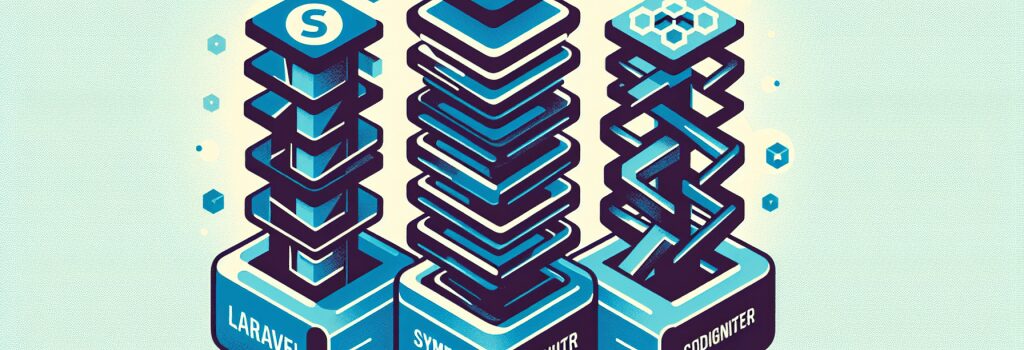PHP Frameworks: An Overview of Laravel, Symfony, and CodeIgniter

Introduction to PHP Frameworks
When building web applications, PHP frameworks often simplify the process by providing reusable codes. By focusing on three of the most popular PHP frameworks; Laravel, Symfony, and CodeIgniter, this article will give you an insight into their features, advantages, and use cases.
Laravel: Streamlined Web Development
Laravel is a highly popular PHP framework known for its elegant syntax and focus on a streamlined web development process. It simplifies tasks such as routing, security, and authentication which are common in web projects, thereby speeding up the development timeline.
Key Features of Laravel
Laravel offers several remarkable features including Object-Relational Mapping (ORM) for simpler interactions with your database, a routing component for user-friendly URL construction, Blade, a simple yet flexible templating engine, and eloquent query builder that allows the developers to perform database queries efficiently.
Symfony: High-Performance PHP Framework
Symfony, another prominent PHP framework, is designed with stability and performance in mind. It provides a set of reusable PHP libraries that can be used to complete various tasks, such as form creation, object configuration, routing, and more.
Key Features of Symfony
Some key features of Symfony include Twig, a flexible, fast, and secure template engine, Doctrine, a database abstraction layer ensuring data integrity, and Symfony security for advanced role-based access.
CodeIgniter: Lightweight and Powerful
CodeIgniter is a lightweight PHP framework that offers simplicity and powerful performance for applications of all sizes. It provides a rich set of libraries for commonly needed tasks and a simple interface to access them. It is particularly suited to projects where you need to build fast, scalable, and dynamic websites.
Key Features of CodeIgniter
CodeIgniter facilitates tasks such as form validation, session management, and email sending with its comprehensive library set. It also boasts of a small footprint, high performance, and extended compatibility with standard hosting, making it an ideal choice for many developers.
Conclusion
When it comes to PHP frameworks, Laravel, Symfony, and CodeIgniter each have their unique strengths and applications. Your choice will depend on the project requirements, the development timeline, and personal preference. Understanding these options will empower you to make informed decisions and harness the power of PHP for efficient web development.
The combination of HTML, PHP, CSS, JS, and WordPress, along with knowledge of these incredible PHP frameworks, will transform your journey to becoming a savvy web developer. Keep experimenting, learning, and evolving.


